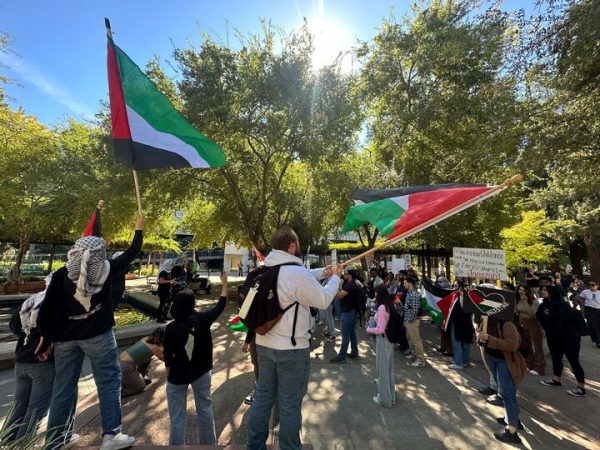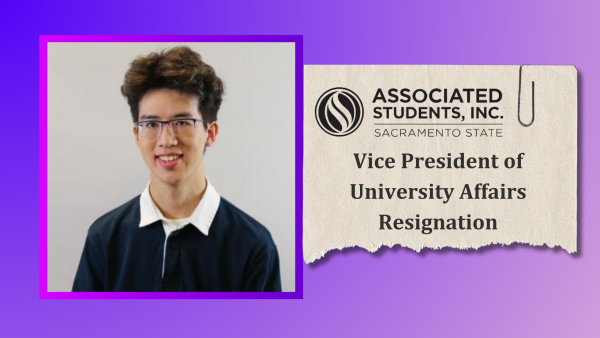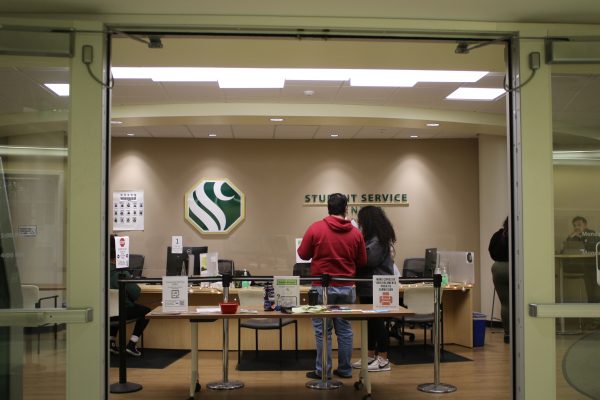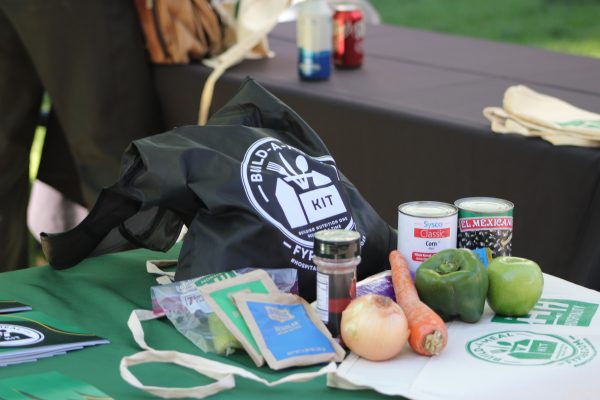Indian vocalist draws inspiration from home
September 20, 2011
Inspiration can be drawn from many different people in life – whether from friends, professors or historical figures. But for south Indian vocalist Sikkil Gurucharan, it is family.
Gurucharan performed Saturday at Sacramento State, where the audience was able to experience his family’s inspiration flow through his music.
“(My family’s) influence on my music is imminent and obvious,” Gurucharan said. “If it were not for them, I would probably be in the payrolls of one of the biggies in the software or finance industry. I owe it all to them.”
Before traveling from India for concerts abroad, Gurucharan worked with a radio station called “Worldspace ” as a Radio Jockey, and also dealt with recording studios and music editing.
“Right now I just sing, perform and think about singing and performances,” Gurucharan said.
Gurucharan plays what is known as Carnatic music, which combines improvisation of instruments and voice. This type of music allows for a performance to change within seconds.
“Carnatic music is a very dynamic art form. Every second there is a change happening,” Gurucharan said. “You have to work towards not making the change so visible to the audience, it should be seamless.”
Having come from a family of musicians, Gurucharan also had the musically inclined gene and became a vocalist.
“In a nutshell, I began because of my family of musicians who wanted me to pursue Carnatic music because they were all experts in it,” Gurucharan said. “Strangely I was not asked to play the flute because everyone else in my family is a flute player. I was asked to sing because they thought I showed promise at a young age.”
Beginning in 1987 at just the age of 5, Gurucharan’s grandmothers, known as the Sikkil Sisters, saw talent and decided he should go into vocal music – he was then put under a teacher from whom he is still learning.
“People respect my grandmothers Sikkil Sisters who were probably the only duo to have mastered the flute in the whole world,” Gurucharan said.
With the motivation and inspiration from his family, Gurucharan said singing is everything he knows.
“The meaning of my life is to keep singing and become a better musician every passing day,” Gurucharan said. “Perfection, as they say, is a journey not a destination.”
His journey has once again brought him to Sacramento State since 2005, for another world music performance hosted by the music department.
“I had sung in Sacramento in 2005 during my first visit to the USA,” Gurucharan said. “I didn’t know it was the capital of California and all I thought of it was that it could be reached by driving through some beautiful landscapes coming from San Jose.”
Gurucharan was the vocalist of the event, but was also accompanied by a violinist and a drummer.
“HK Venkatram is playing the violin. Tiruvarur Bhaktavathsalam is a senior Mridangam exponent. A Mridangam is a two-sided drum which provides both melody and rhythm to our music,” Gurucharan said.
Because it was a south Indian concert, the majority of the audience members wore the traditional dress; it was quite difficult to spot anyone who was not of the south Indian culture.
“It was very different, I haven’t been to one of these kind of events so I didn’t know what to expect,” said junior liberal studies major Yuliya Pefrenko.
Pefrenko made it clear she was not used to Gurucharan’s type of music; she is more familiar with symphonies.
“I normally go to symphony concerts,” Petrenko said. “(Gurucharan’s music) is a lot more drums and different articulations in his voice.”
Pefrenko was among the audience members who were not familiar with the south Indian culture, but who are interested in world music.
“There was a very nice mix of classical audience, south Indians, historians and most importantly children who are learning music,” Gurucharan said. “Those are our audience 10 years from now, so we need to catch them young. And I’m so happy they all turned up in large numbers.”
During Gurucharan’s performance on Saturday, children accompanied him on stage to sing – which speaks to the use of improvisation throughout his music.
“You’re not sure what’s going to happen on stage, but then the stage sets you up and you get warmed up and start enjoying the music,” Gurucharan said. “(You then) don’t feel like ending, but (afterwards), it’s euphoric.”
Marwa Diaf can be reached at [email protected].









































































































































